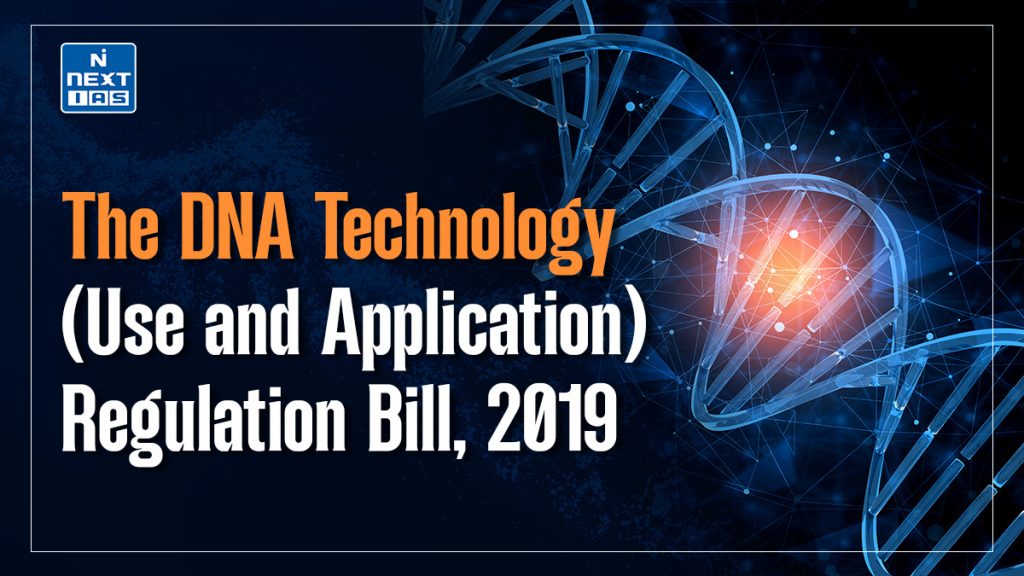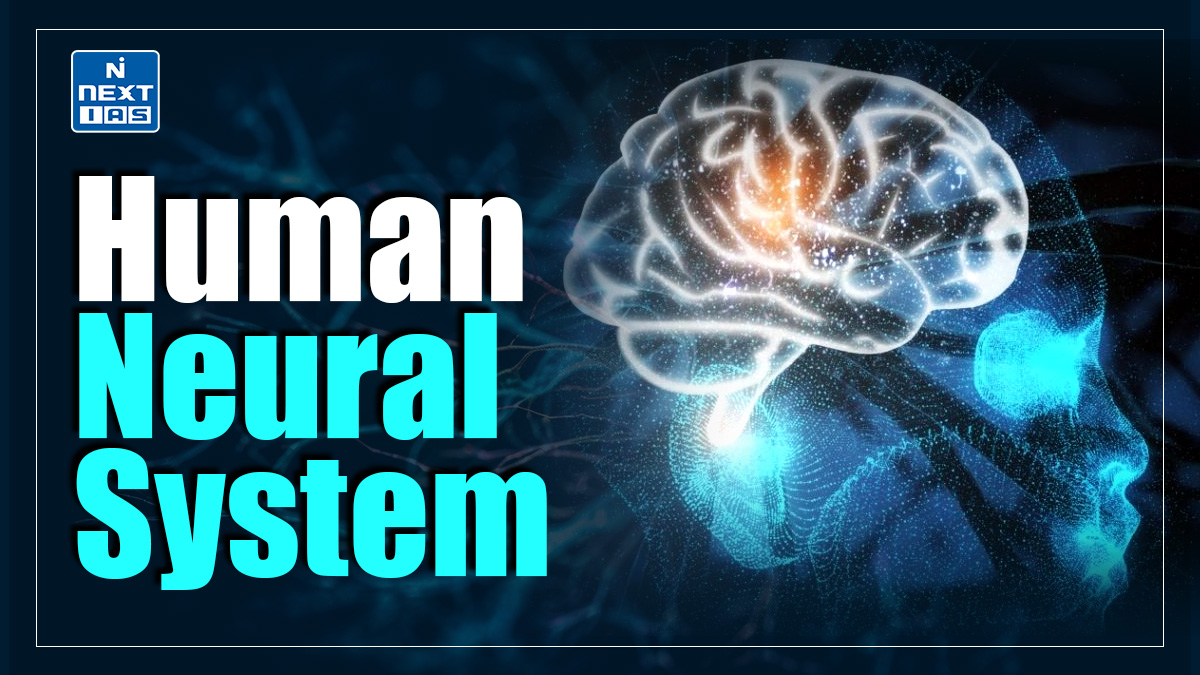
The DNA Technology (Use and Application) Regulation Bill, 2019, aims to regulate the application of DNA technology for identifying missing persons, victims, offenders, and unidentified deceased individuals. Introduced in the Lok Sabha, it seeks to enhance forensic capabilities in India, ensure the reliability of DNA test results, and establish national and regional DNA data banks.
About The DNA Technology (Use and Application) Regulation Bill, 2019
- The DNA Technology (Use and Application) Regulation Bill, 2019, aims to regulate the use of DNA technology in India for identifying missing persons, victims, and offenders.
- It proposes establishing a national data bank and regional databases to maintain records. Additionally, the bill emphasizes the importance of consent for DNA collection and includes provisions for the removal of DNA profiles from databases under certain conditions.
- This legislation is designed to enhance forensic capabilities while addressing privacy and ethical concerns surrounding DNA profiling.
Features of the DNA Technology (Use and Application) Regulation Bill, 2019
The main features of the DNA Technology (Use and Application) Regulation Bill, 2019 are:
- Use of DNA Data: Under the Bill, DNA testing is allowed only in respect of matters listed in the Schedule to the Bill. These include offences under the Indian Penal Code, 1860, and for civil matters such as paternity suits. Further, the Schedule includes DNA testing for matters related to establishment of individual identity.
- Collection of DNA: While preparing a DNA profile, bodily substances of persons may be collected by the investigating authorities. Authorities are required to obtain consent for collection in certain situations. For arrested persons, authorities are required to obtain written consent if the offence carries a punishment of up to seven years. If the offence carries more than seven years of imprisonment or death, consent is not required. Further, if the person is a victim, or relative of a missing person, or a minor or disabled person, the authorities are required to obtain the written consent of such victim, or relative, or parent or guardian of the minor or disabled person. If consent is not given in these cases, the authorities can approach a Magistrate who may order the taking of bodily substances of such persons.
- DNA Data Bank: The Bill provides for the establishment of a National DNA Data Bank and Regional DNA Data Banks, for every state, or two or more states. DNA laboratories are required to share DNA data prepared by them with the National and Regional DNA Data Banks. Every Data Bank will be required to maintain indices for the following categories of data: (i) a crime scene index, (ii) a suspects’ or under trials’ index, (iii) an offenders’ index, (iv) a missing persons’ index, and (v) an unknown deceased persons’ index.
- Removal of DNA Profiles: The Bill states that the criteria for entry, retention, or removal of the DNA profile will be specified by regulations. However, the Bill provides for removal of the DNA profiles of the following persons: (i) of a suspect if a police report is filed or court order given, (ii) of an Undertrial if a court order is given, and (iii) on written request, for persons who are not a suspect, offender or Undertrial, from the crime scene or missing persons’ index.
- DNA Regulatory Board: The Bill provides for the establishment of a DNA Regulatory Board, which will supervise the DNA Data Banks and DNA laboratories. The Secretary, Department of Biotechnology, will be the ex officio Chairperson of the Board. The Board will comprise additional members including: (i) Experts in the field of biological sciences, and (ii) Director General of the National Investigation Agency and the Director of the Central Bureau of Investigation.
- Functions of the Board: The functions of the Board include: (i) Advising governments on all issues related to establishing DNA laboratories or Data Banks, and (ii) Granting accreditation to DNA laboratories. Further, the Board is required to ensure that all information relating to DNA profiles with the Data Banks, laboratories, and other persons are kept confidential.
- DNA Laboratories: Any laboratory undertaking DNA testing is required to obtain accreditation from the Board. The Board may revoke the accreditation for reasons including, failure to: (i) Undertake DNA testing, or (ii) Comply with the conditions attached to the accreditation. If the accreditation is revoked, an appeal will lie before the central government or any other authority notified by the central government. Further, every DNA laboratory is required to follow standards for quality assurance in collection, storing, and analysis of DNA samples. After depositing the DNA profile for criminal cases, the laboratory is required to return the biological sample to the investigating officer. In all other cases, the sample must be destroyed.
- Offences: The Bill specifies penalties for various offences, including: (i) For disclosure of DNA information, or (ii) Using DNA sample without authorization. For instance, disclosure of DNA information will be punishable with imprisonment of up to three years and fine of up to one lakh rupees.
Advantages of the Bill
The DNA Technology (Use and Application) Regulation Bill, 2019 offers several advantages:
- Enhanced Forensic Capabilities: The bill aims to improve the accuracy and reliability of forensic investigations by establishing national and regional DNA data banks, which can assist law enforcement in solving crimes more efficiently
- Identification of Missing Persons: It provides a framework for identifying missing individuals, victims of disasters, and unidentified deceased persons, which can bring closure to families and help in disaster response
- Streamlined Legal Processes: By allowing DNA profiling as a legal tool, the bill can expedite judicial processes, making it easier to establish identity and resolve cases more swiftly
- Regulatory Oversight: The establishment of a DNA Regulatory Board will ensure that all laboratories conducting DNA analysis meet accreditation standards, thereby enhancing the integrity of DNA testing
- Ethical Standards and Privacy Protections: The bill includes provisions for informed consent before DNA collection and mandates the removal of DNA profiles under certain conditions, helping to address privacy concerns
Concerns Related with this Bill
The DNA Technology (Use and Application) Regulation Bill, 2019 raises several concerns, including:
- Privacy Issues: Critics argue that the collection and storage of DNA data pose significant privacy risks. There are fears that personal genetic information could be misused, leading to unauthorized access and potential violations of individual rights.
- Informed Consent: While the bill mandates consent for DNA sample collection, exceptions exist for serious crimes. This raises concerns about whether individuals are adequately informed about the implications of providing their DNA.
- Data Security: The potential for data breaches poses a significant risk. Without robust safeguards, sensitive genetic information could be exposed or stolen, resulting in misuse.
- Ethical Considerations: There are ethical dilemmas surrounding the use of DNA technology, particularly regarding potential discrimination based on genetic information and the implications for marginalized communities.
- Implementation Challenges: Establishing a comprehensive DNA database and ensuring all laboratories comply with regulatory standards may face logistical and administrative hurdles, potentially hindering the bill’s effectiveness.
Way Forward
The DNA Technology (Use and Application) Regulation Bill, 2019 involves balancing innovation with privacy. Strengthening regulatory oversight, ensuring transparency in data handling, and addressing privacy concerns through safeguards are crucial. Public engagement, policy refinement, and capacity building in forensic labs will enhance the bill’s effectiveness and build trust in its implementation.
Conclusion
The DNA Technology (Use and Application) Regulation Bill, 2019 represents a crucial step toward modernizing forensic investigations in India. With proper regulatory frameworks, privacy safeguards, and public engagement, the bill can enhance criminal justice, disaster management, and identification processes while addressing ethical concerns and ensuring responsible use of DNA technology.
GS - 3





